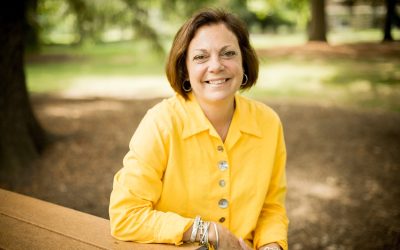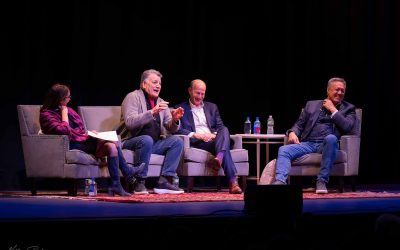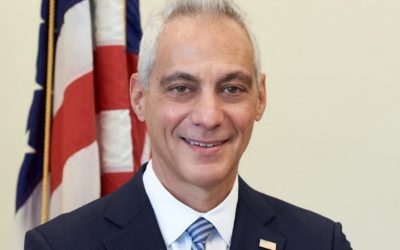“It resonated with my soul”
Enlarge
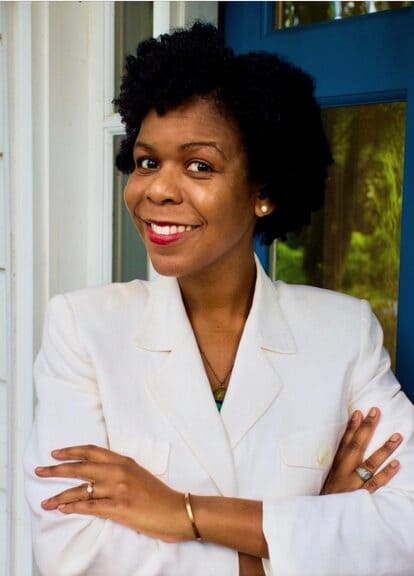
May 2022 – When Alexis Carter Thomas T’23 was researching Doctor of Ministry (DMin) programs, she found herself drawn to Drew Theological School’s Women’s Religious Leadership cohort.
The cohort, now offered as a specialization within the Courageous Leadership in a Changing Culture cohort, deepens women’s considerable gifts for leadership, engaging women-centered theories, wisdom, and practices, as well as Drew’s long tradition of feminist, womanist, and LGBTQ theology and theory.
Thomas is passionate about pastoral ministry, but found herself utilizing her pastoral skills in ways to help fellow pastors and faith leaders, particularly Black churchwomen, navigate challenges through theological reflection as a consultant for churches and faith-based organizations.
We recently sat down with Thomas to learn more about how the program is supporting her vocational goals.
Alexis Carter Thomas T’23
Doctor of Ministry, Women’s Religious Leadership Cohort
Consultant, Pastors for Normal People | Project Director, The Vinery
What brought you to Drew Theological School?
In 2019, I was honored to be the recipient of Leadership Education at Duke Divinity’s Reflection Leadership Grant. My project was to conduct ethnographic research to explore the flourishing of Black clergywomen throughout the U.S. It was incredible! I was deeply inspired by this work. I say that this was the year that “I met myself.” After this grant experience, I considered that someday I would return to research and study.
The experiences that the Reflective Leadership Grant afforded me led me to pursue a Doctor of Ministry. I considered a few programs. I knew that I did not want a preaching or general leadership concentration that many schools offer, but I wanted something that would expand my understanding of vocation and equip me to better serve Black churchwomen.
When I learned of the Drew DMin with the concentration in Women’s Religious Leadership, it resonated with my soul.
Enlarge
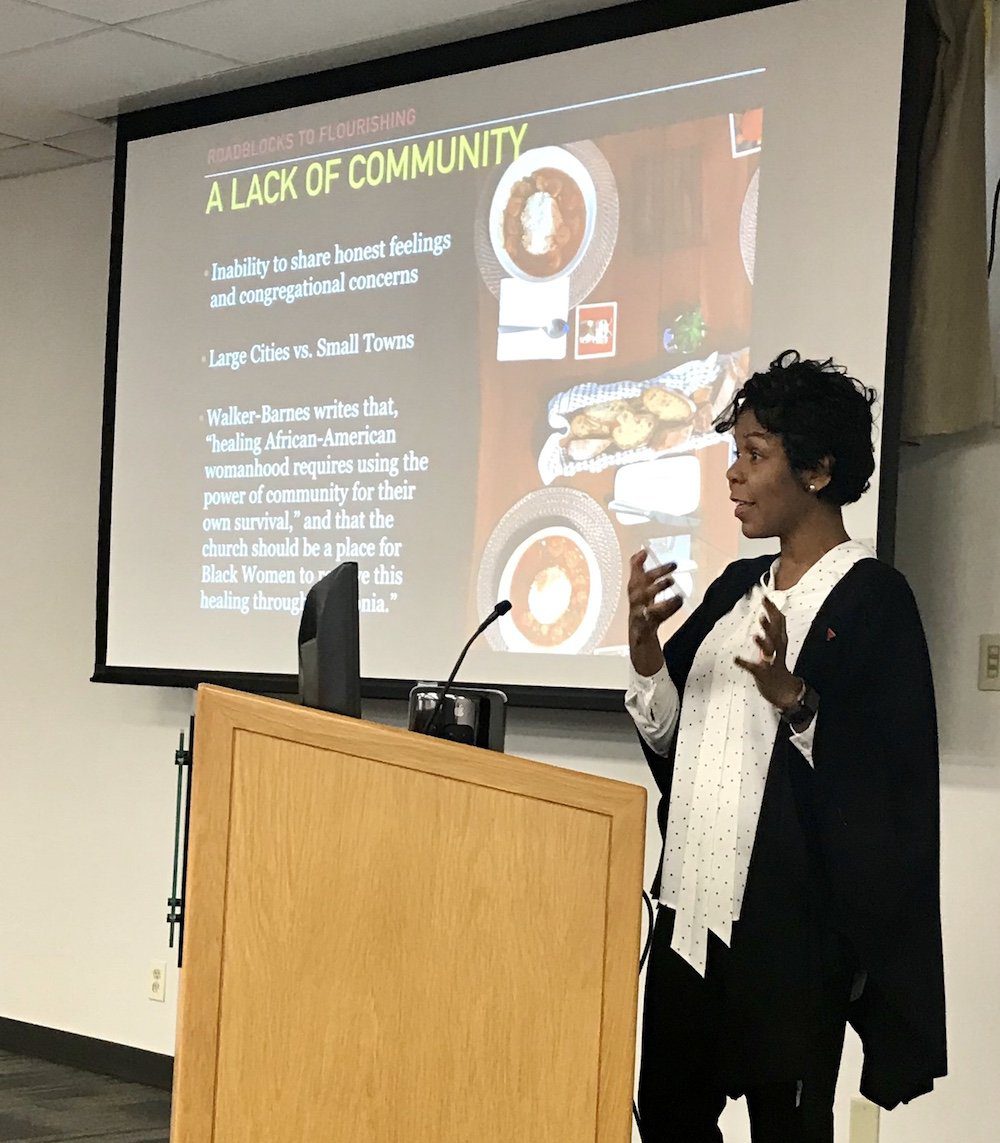
How is the Women’s Religious Leadership cohort preparing you to meet your vocational goals?
I ultimately chose the DMin program at Drew and Women’s Religious Leadership cohort because I needed to do deep work around how gender, race, and class affect the ways I live and lead in the world.
The Women’s Religious Leadership cohort has become the community that I have needed in this season of my life. It is so wild that this is the first time that each individual in the cohort has been able to immerse ourselves in theological study without regular attention to the male gaze. We will finish this degree having worked entirely with women professors. Yet, we have spent our lifetimes with men leaders, pastors, and professors.
The professors and my relationships with the members of my cohort have been absolutely life-giving—they have been what I have needed during the COVID-19 pandemic and in this season of ministry. My cohort members have become colleagues, friends, and sisters.
While at Drew, we have had many powerful moments and professors who have challenged us and taught us more expansive ways of doing theological inquiry.
- Dr. Hoxie Schol’s gifts for valuing and supporting students based on individual needs and interests.
- Dr. West’s liberative teaching style and gracious truth-telling.
- Dr. Ott’s gift for innovative and transformative pedagogy.
- Dr. Johnson-DeBaufre’s ability to listen deeply and guide down paths that are unfamiliar to them while affirming their insights.
We have needed these.
Enlarge
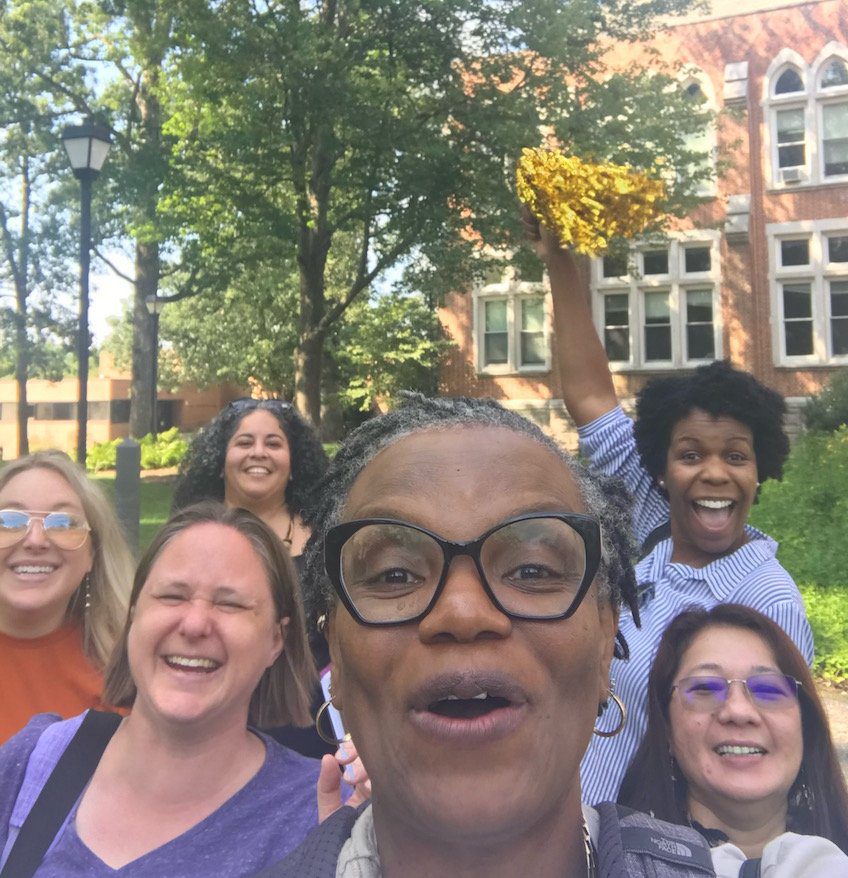
Tell us about your DMin project.
My research will explore how womanist theology affects the self-actualization and theological lenses of Black women in congregational leadership in Christian churches. I am researching the effects of cultivating spaces for connection, theological study, and critical engagement with womanist theology—and how these aspects change how Black women view their callings and ministry contexts.
What does your consultancy work look like?
I spend a great deal of time strategizing and working to be a faithful thought partner. Some of my favorite aspects of my consulting work include curating programs and cultivating community gatherings that are enriching for participants. I plan meetings, select speakers, and do program evaluations. Currently, I am giving a great deal of time to directing a Lilly Thriving Congregations initiative called The Vinery.
I find deep delight in pastoral ministry, yet I began to witness how my passions for deep listening and cultivating liberative spaces were needed in ways that went beyond the traditional role of a pastor. I came into consulting with churches and faith-based organizations because I regularly encountered pastors and faith leaders who desired conversation partners with whom they could do theological reflection and be their authentic selves (in ways that were often difficult for them to do with others in their ministry contexts). In recent years, I have had dear friends, phenomenal Christian leaders, leave their churches due to burnout and being wounded from toxic church environments.
